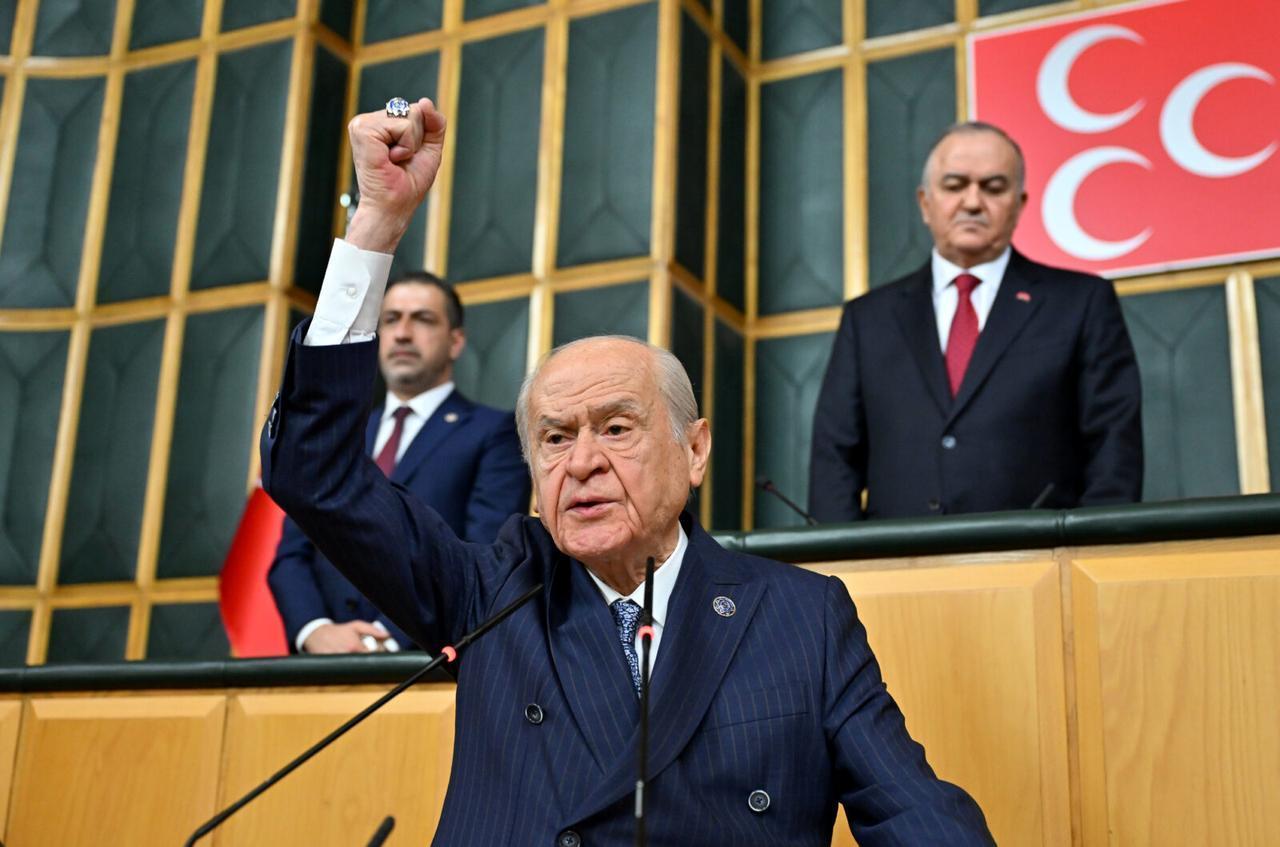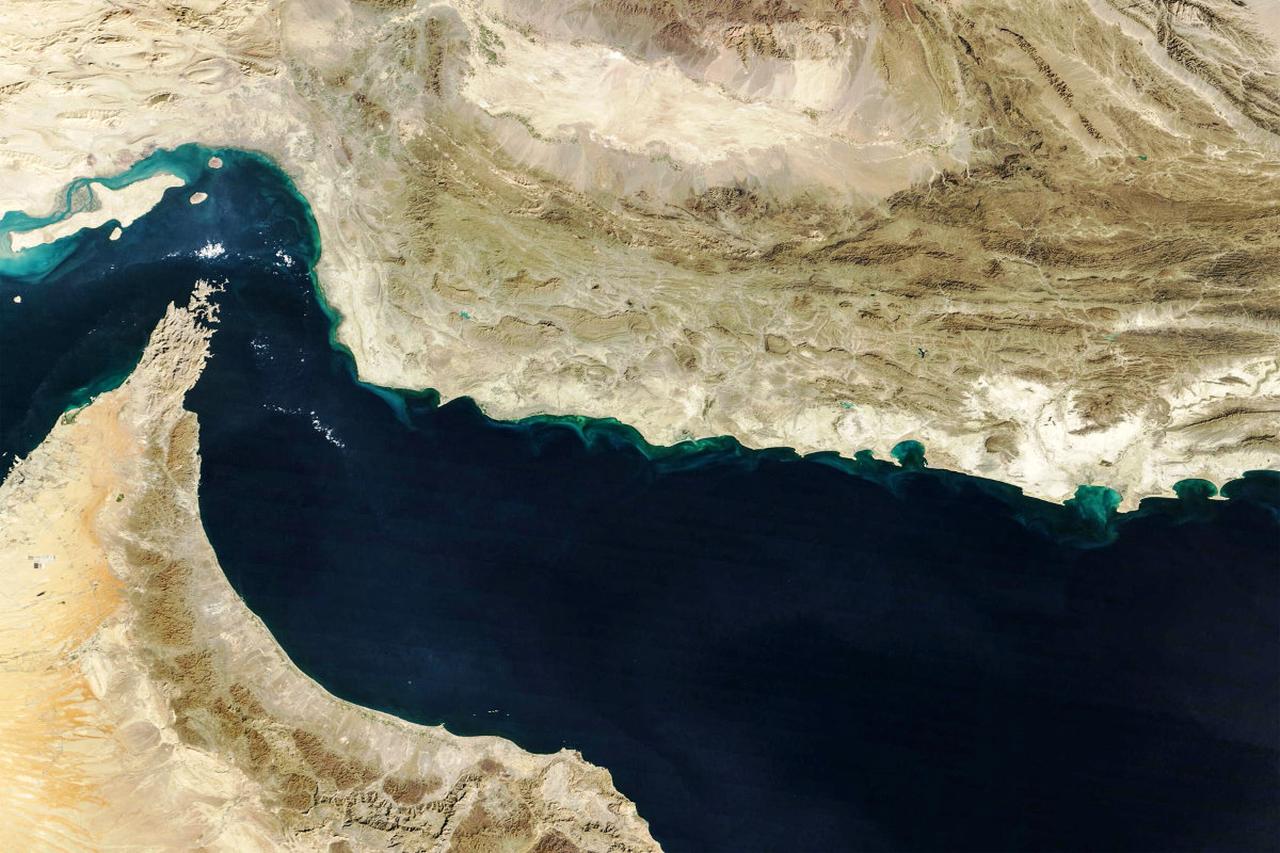
Nationalist Movement Party (MHP) leader Devlet Bahceli warned Monday that escalating tensions between Israel and Iran—and direct U.S. involvement—could ignite a wider global conflict, urging all political factions in Türkiye to act with unity and responsibility in the face of growing regional instability.
“The decision to strike Iran, the unrestrained brutality of Israel, Iran’s vow of retaliation, and the possible closure of the Strait of Hormuz are igniting a chain of unforeseeable and dangerous events,” Bahceli said in a strongly worded written statement.

He accused Western powers of orchestrating chaos in the region, calling the current situation “a prelude to a third world war.” Bahceli added, “It does not take a prophet to predict which country will be targeted after Iraq, Syria, and Iran. All calculations are being made against us. The historical 'Eastern Question' is back on the table.”
Bahceli, whose party is a key ally in President Recep Tayyip Erdogan’s ruling coalition, denounced the US and Israel, accusing them of pursuing “imperialist and Zionist aggression.”
He also claimed that “all the bloodshed and destruction is setting the stage for a global catastrophe.”
Without naming names, Bahceli criticized the opposition for what he described as “lies, slander, and political immaturity,” urging them to adopt a “truthful and constructive” stance for the sake of Türkiye’s national security.
Bahceli warned that Türkiye itself could soon be drawn into the conflict: “Those who bombed historic Turkish cities in Iran have sent a brutal message. Türkiye is always a target. The struggle between the crescent and the cross continues.”
The far-right leader said any political rhetoric that undermines Türkiye’s internal unity plays into the hands of foreign powers: “Türkiye is not a playground. There is no room for provocations or foreign agendas within our borders.”
He also criticized the United Nations and international community for what he called “hypocrisy and silence” over Israel’s actions in Gaza and the broader region.
“The world is facing the collapse of the rules-based international system. The war in Ukraine continues, and now the Middle East is on fire. Global powers are playing their dirty games through proxies, with Türkiye surrounded by flames,” Bahceli said.
Calling for diplomatic solutions, he concluded, “There is no other Türkiye. This land, this flag, and this nation belong to all of us. Any strike on Iran is also a message to Türkiye. The global system is being reshaped—and Türkiye must resist with full determination.”
On Tuesday, June 17, Bahceli—the leader of Türkiye’s Nationalist Movement Party (MHP) and a key political partner of the ruling government—issued a stark warning: “Israel’s objective is to encircle the Anatolian geography,” he declared, adding that Türkiye stands as the “final target” in a broader regional strategy.
His comments were not made in isolation; they revived a long-standing belief deeply rooted in segments of Türkiye’s political consciousness—one historically voiced by former Prime Minister Necmettin Erbakan, the ideological forefather of President Recep Tayyip Erdogan.
That same day, Erbakan’s son, Fatih Erbakan—leader of the New Welfare Party and an emerging voice in conservative politics—reiterated the theory, aligning recent Israeli actions with what he sees as a larger plan to weaken independent Muslim-majority nations.
Their concerns gained further traction following a viral Israeli TV clip in which a commentator predicted that Israel would eventually “face Türkiye.” The video quickly spread across Turkish and Arab social media, stoking fears of an unfolding geopolitical chain reaction.
But these anxieties are not limited to viral soundbites or partisan rhetoric. Following Israel’s recent escalation of strikes against Iranian targets, a widely shared sentiment resurfaced in Türkiye: “After Iran, Türkiye is next.”
This belief cuts across ideological lines—from Islamists to nationalists, even among secular critics—fueled by the perception that Western powers and Israel are systematically dismantling governments they view as uncooperative or threatening.

Security analysts, columnists, and political commentators have amplified the concern, warning that if Iran collapses under sustained external pressure, Türkiye could face similar destabilizing forces next. This projection is seen not just as political theory but as a lesson drawn from two decades of regional interventions—from Iraq to Libya, from Syria to Egypt—where regime change and fragmentation followed sustained foreign pressure.
For many in Türkiye, these developments are not just about foreign policy—they strike at the heart of national identity and strategic survival.
The idea that Türkiye may be the ultimate obstacle to a new regional order, and thus a target, is gaining momentum in both elite circles and public discourse.